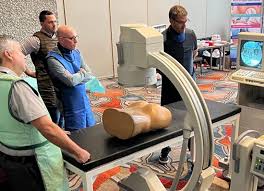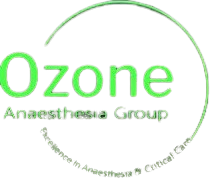
Pain Management Course
Pain Management Course
Introduction
Pain is one of the most common reasons patients seek medical care, yet it remains one of the most misunderstood and undertreated conditions. The Pain Management Course is a comprehensive, evidence-based training program designed to equip healthcare professionals with the knowledge, skills, and confidence to effectively assess and manage pain across a wide variety of clinical settings.
This course covers the physiological, psychological, and sociocultural dimensions of pain. It emphasizes a holistic and patient-centered approach, combining pharmacologic, non-pharmacologic, and interventional therapies. Participants will engage in both theoretical learning and hands-on practical sessions, learning to tailor pain management strategies to individual patient needs while minimizing harm.
Course Objectives
By the end of this course, participants will be able to:
- Understand the pathophysiology and classification of acute, chronic, and neuropathic pain.
- Conduct comprehensive and accurate pain assessments using standardized tools.
- Develop individualized and multimodal pain management plans.
- Apply principles of pharmacologic therapy, including opioids and non-opioid analgesics.
- Utilize interventional and complementary treatment modalities.
- Identify and manage pain in special populations such as pediatric, geriatric, and cancer patients.
- Prevent, detect, and manage opioid misuse and dependence.
- Communicate effectively with patients and families about pain expectations and treatment options.
- Collaborate in interdisciplinary teams for optimal pain care delivery.
Target Audience
This course is designed for a wide range of healthcare providers who are directly involved in managing patient pain. This includes:
- Primary care physicians
- Anesthesiologists and pain specialists
- Nurses and nurse practitioners
- Physician assistants
- Emergency medicine providers
- Physical and occupational therapists
- Pharmacists
- Palliative care providers
- Mental health professionals
Whether you are new to pain medicine or seeking to update your skills, this course provides a valuable foundation for safe, compassionate, and effective pain care.
Course Content
1. Fundamentals of Pain
- History and evolution of pain medicine
- Types and classifications: nociceptive, neuropathic, inflammatory, psychogenic
- Neurophysiology of pain perception and transmission
- Acute vs. chronic pain: mechanisms and clinical implications
2. Pain Assessment
- Subjective and objective pain assessment tools (e.g., VAS, NRS, McGill Pain Questionnaire)
- Functional assessments and patient-reported outcomes
- Cultural and psychological influences on pain expression
- Communication strategies for difficult conversations
3. Pharmacologic Pain Management
- Non-opioid analgesics: NSAIDs, acetaminophen, antidepressants, anticonvulsants
- Opioid pharmacology: indications, titration, rotation, and tapering
- Risk assessment and mitigation strategies for opioid therapy
- Managing side effects and recognizing signs of misuse or addiction
- Adjuvant therapies and multimodal analgesia
4. Interventional Techniques
- Trigger point injections
- Nerve blocks (peripheral and central)
- Epidural steroid injections
- Radiofrequency ablation and neuromodulation
- Indications, contraindications, and procedural basics
5. Non-Pharmacologic and Complementary Therapies
- Physical therapy and exercise
- Cognitive-behavioral therapy (CBT) and mindfulness
- Acupuncture, massage, and relaxation techniques
- Use of TENS and other neuromodulatory tools
6. Pain in Special Populations
- Pediatric pain: assessment and age-appropriate treatments
- Geriatric pain: polypharmacy, cognitive impairment, and frailty considerations
- Pain management in cancer and palliative care
- Pain during pregnancy and postpartum
7. Chronic Pain and Multidisciplinary Management
- Common chronic pain syndromes: fibromyalgia, low back pain, CRPS
- Biopsychosocial model and patient-centered care plans
- Interdisciplinary care teams: roles and collaboration
- Setting realistic expectations and long-term goals
8. Legal, Ethical, and Public Health Considerations
- Informed consent and documentation
- Balancing adequate pain control with opioid stewardship
- National and international guidelines (CDC, WHO, etc.)
- Addressing stigma around pain and opioid use
Course Format
The course combines multiple educational modalities to cater to different learning styles:
- Lectures and multimedia presentations
- Small group discussions and case-based learning
- Interactive skill-building workshops
- Hands-on training in injection techniques and device use
- Real-world simulations and role-playing
Assessment and Certification
Participants will complete a knowledge assessment before and after the course to gauge learning outcomes. Practical competencies will be evaluated during hands-on sessions. Upon successful completion, participants will receive a certificate and may be eligible for continuing education (CME/CEU) credits depending on institutional policies.
Learning Outcomes
By completing this course, participants will be better prepared to:
- Confidently assess and diagnose different types of pain.
- Implement evidence-based treatment strategies.
- Reduce patient suffering and improve quality of life.
- Navigate complex cases with clinical reasoning and empathy.
- Contribute to safer opioid prescribing practices in their community.
Conclusion
Pain is more than a symptom; it is a complex experience that deserves nuanced and compassionate care. The Pain Management Course provides a robust foundation for clinicians committed to improving their patients’ lives through responsible and effective pain treatment.
As pain medicine continues to evolve, healthcare providers must stay current with the latest approaches to ensure safe, effective, and ethical care. This course offers that opportunity—bridging the gap between science and human suffering through skillful, patient-focused intervention.
Let me know if you’d like the text formatted in a specific way (like bullet points, tables, or learning modules), or if you need similar descriptions for other courses.
.
Date
na
Course Faculty
Dr Balaji Asegaonkar
Course Syllabus
Introduction
Course Objectives
Course Fees
na
